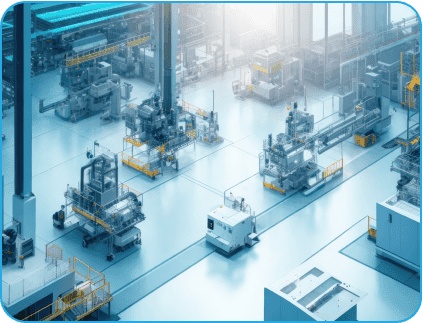- March 4, 2020
- Posted by: Abhimanyu Sundar
- Category: Data & Analytics

A piece of technology that has the rather unique ability to amaze us, intrigue us and intimidate us at the same time is artificial intelligence (AI).
Artificial intelligence today poses innumerable possibilities that are beyond the scope of our imagination.
In the era of Industry 4.0, automation and connected mobility, artificial intelligence will be the bedrock of it all.
AI will power everything from decision-making, analytics, aerospace and robotics all the way to agriculture, construction and so much more. By 2025, the global artificial intelligence market will reach $120 billion.
In the AI world, the rivalry between USA and China is intense and is gaining momentum.
2017 saw AI start-ups in China 50% of dollar revenue going to artificial intelligence start-ups globally, which is more than the USA.
When it comes to deep learning as well, China produces 6x more patents than the USA.
Artificial intelligence has become ubiquitous and not limited to supercomputers or powerful big devices. Listed below are a few major AI trends that we will see in 2020:
Ubiquity via Data Access
There is debate as to whether still data is the new oil or not. With that being said, it is making artificial intelligence very versatile.
Lack of accurate and reliable information is what is hindering the transition to decision making that is made via AI-powered automation.
This is one of the major challenges which are being tackled with the digitization happening and options such as real-world simulation.
This has made the process to become streamlined, minimized costs, tremendously enhanced research capabilities and also allowed accurate data and information to be gathered in the test phase.
For example, autonomous vehicle developers have access to unlimited hours of driving data without the vehicle even being on the street.
There would be a massive increase in artificial intelligence use for accurate real-world simulations.
The surge in sophistication of artificial intelligence and it’s increased capacity will see major cost-effectiveness come into play and AI being available widely.
This can be said with authority because AI is being incorporated in almost every device we use on a daily basis, which paves the way for interconnected devices that process information and learn themselves.
Robotization Enhanced
The go to and most powerful image we have of AI is an army of programmed robots that replace humans in the assembly line.
Robotization is already in use with many companies adopting robotization for varied uses.
The change we see today is that from machines just manual and tedious tasks, they have moved on to performing semi-skilled and skilled tasks such as report generation, providing instructions, creating animations, form filling and more.
Check out our Machine Learning and Deep Learning Services
Read More
To summarize, training machines to complete the tasks has moved from partial automation to complete automation. It has been predicted that by 2025, in Japan, robots will replace caregivers in the care for the elderly.
This will tremendously increase efficiency and will give us the required time to focus on core tasks that require human intelligence.
Cybersecurity Augmented
Concerns regarding security breaches and data privacy have led to a big question mark regarding security preparedness in the age of internet of things and artificial intelligence.
By the end of this year, there are going to be 24 billion devices in use which will be connected to the internet.
Gartner has predicted that connected devices per household will increase from to 500 by 2022.
With more machine learning trained algorithms coming into the foray and with an increased cloud capacity, it means that hacking and phishing and more such cyber-attacks become extremely difficult to detect.
Conventional cyber security will not do the trick anymore e and AI bolstered cyber security will be the need of the hour against such malicious attacks.
Conventional systems will not be able to detect the malware that is created at the current pace without the use of AI.
Cybersecurity firms today have started using AI for pattern recognition with the aim of detecting malware and viruses.
Another added artificial intelligence advantage is predictive functioning.
Superior Customization
With the aim of staying ahead of the competition and being prepared for the ever-transforming real of business, companies struggle to have real-time insights, figure out customer preferences and deliver the required services accordingly.
Location intelligence and real-time data has made customized services mainstream in all domains.
With customer expectations being sky high, companies today need to have very relevant and personalized services in order to remain relevant and retain their customer base.
This is where artificial intelligence plays a huge part. With AI applications being used in all fields and location intelligence becoming advanced, companies will be able to offer very refined personalized services.
The AI & Human Connection
In 2019, Bill Gates said artificial intelligence can be beneficial to the society and can actually be our friend.
Artificial intelligence will not compete with humans or supersede us. There will not be a scenario like the rise of machines either.
Leverge your Biggest Asset Data
Inquire Now
Yes, there will be a loss of jobs due to AI, however, human capacity will be enhanced with the aid of real-time data analytics.
Reskilling will be very common and 75% of the companies will re-invest in reskilling programs by 2025 according to IDC.
Currently, there are nearly 500.000 researchers and specialists in the field of AI whereas the requirement is in millions.




